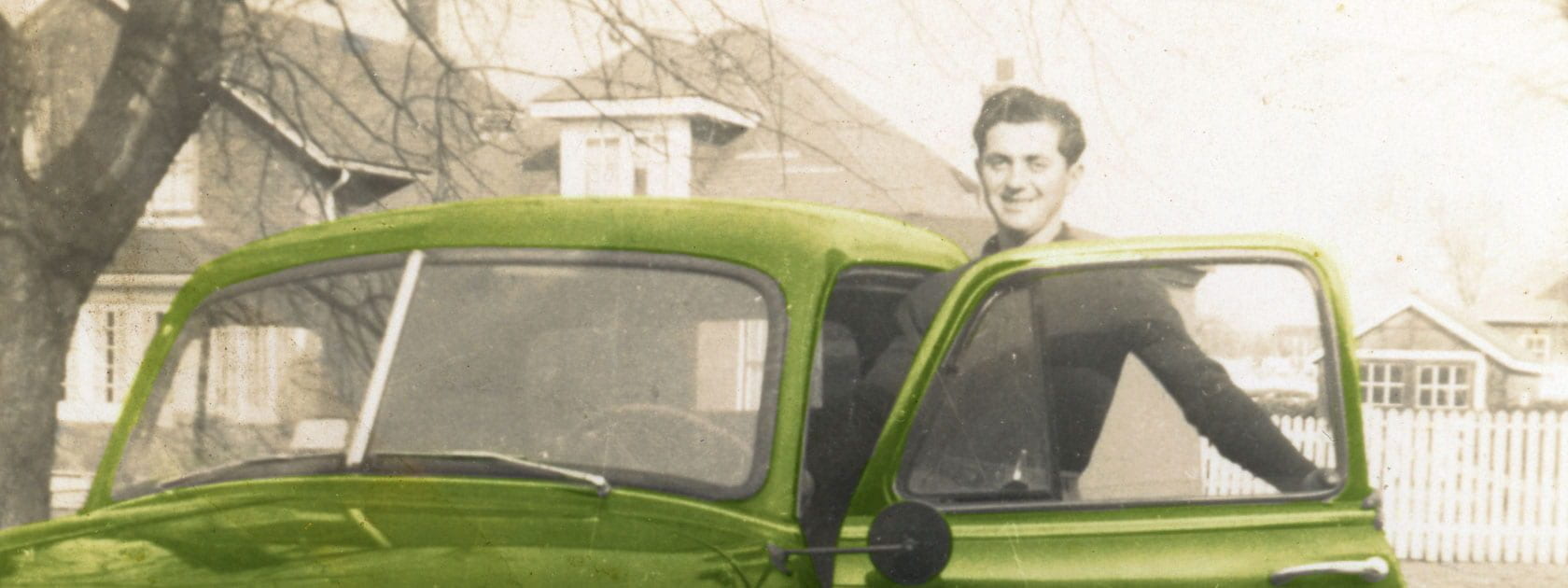Written by Gabriella Clarizio
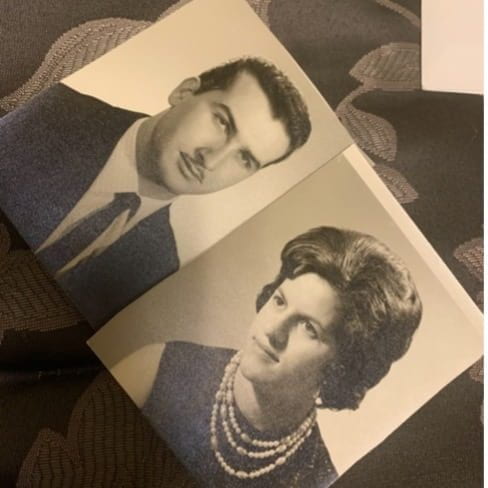
A semi-structural interview with Maria Pirillo about her immigration from Italy to Canada in 1963. Maria provides insight into the hardships that come with immigration and how Canada became her home.
Introduction
Maria Pirillo sat down with me, her granddaughter Gabriella, on October 2nd, 2022, to share her story of immigration from Italy to Canada in 1963. Coming from a small town in Abruzzo, Italy at the age of 15, Maria made the journey over to Canada with her widowed mother. Although she never went back to live in Italy, she still has lots of memories and experiences that she loves to share. This in-person, semi-structured interview was conducted so that current and future generations can look back and discover more about their own history. Maria answers a set list of questions and is able to provide answers to a couple of follow-up questions as well. Being a difficult time in her life, I could tell Maria was getting emotional, and thus, I was focused more on getting a general overview of her experience rather than each answer in excruciating detail. Many stories from the past are passed down by word of mouth from generation to generation. Being Maria’s granddaughter, I have heard many of these immigration stories in the past, but this project has given me the opportunity to create a piece of oral history that can be referenced in future works.
Also, during the interview, items from Maria Pirillo’s personal archive are shown, such as her passport and photos from back home. There are four items presented throughout the interview that allow us a window into the past which helps us to visualize the struggle and perseverance of Italian immigrants. Hopefully, her story encourages other immigrants to participate in sharing their own stories and teaching multiple generations more about the Italian heritage.
Interview
Maria was interviewed on October 2nd, 2022 in her home located in Toronto, Ontario. This interview took place to provide us with a unique experience and perspective when looking back on Italian immigration. I have always been aware of my heritage and have heard many stories from family members about their time in Italy. However, after hearing Maria’s stories about her own experience coming to Canada, I feel immensely grateful and lucky that my family has made so many sacrifices to be able to give myself and future generations the possibility of a better life. Although Maria’s life in Italy was not particularly unpleasant, she does agree that Canada has provided better opportunities and an overall better life for her family. During the interview, I learned how to stay professional and follow a semi-structural interview script as well as how to keep an interview ethical and act appropriately which are transferable skills that can be applied to future projects, jobs, and everyday situations. I have also learned new technological skills, attempted new applications, and discovered new learning material. This newfound confidence will allow me to step outside my comfort zone and try new programs and software to enhance my academic work. I can apply all that I have learned in future courses, assignments, and in my everyday life when investigating not only immigration but any story or concept. This project has inspired me to investigate the immigration stories of my other family members and compare them to Maria’s story. Overall, looking back on this experience I am very grateful that I have people so close to me that have experienced hard times but are still willing to share their stories.
Transcription of Interview
| Questions | Interviewee |
| Date of Interview | October 2nd 2022 |
| Name of Interviewee | Maria Pirillo |
| What age group/generation are you in? | Generation Baby Boomer 1947 |
| What first brought you to Canada? What was your first year in Canada like? | “Because my brother was sick, my mom was come for him, and my sister sponsor us.” “The first year when I came in Canada, I was crying all year, every day I went to sleep, and I was crying. Then after a year, I met my husband, and I met him at the bus stop. So, then my life change and I see more friend and go out with the friend, with him, and it changed my life. Now, if I have to go back in Italy I won’t go.” |
| Where in Canada did you first arrive and when? | “Well, I came in ah August the 16th 1963. Me and my mom we land to Toronto.” |
| How old were you when you Immigrated to Canada? What part of Italy did you emigrate from? | “I was fifteen years old, and I come from Roccamorice, province de Pescara in Abruzzo.” |
| How did you find the plane ride to Canada? | “Well, I never was on a plane and I was afraid but everything went well and that’s it.” |
| What was your first impression of Canada? | “When I came, I don’t like it, eh I don’t know the language I don’t have too many friend, I left my friend behind. So, when I came here it was hard for me to because I didn’t go to school to deal with everything it was so hard.” |
| Did you bring any items of importance with you to Canada? | “Yes, I bring some photo and some photo from my friend because I have lots memory from back home where I’m born.” |
| Did you have any difficulties giving birth in Canada? | “No because after so many years I learn the language and my doctor was Italian. It was more easy for me, we could communicate.” |
| Did you exchange letters which relatives in Italy? | “No, I didn’t but I, I call my sister by phone, and I talk to her.” |
| Where is “home” for you and why? | “Canada is my home; I love Italy because I born there but over here I have opportunity to raise my family better way than any place else.” |
| Did the experience of giving birth in Canada give you an increased sense of Canadian Identity? | “Yes, cause I start my family and I give birth to my kids. They come Canadian citizen to give them both better life.” |
Analysis
The information Maria shared in her interview did not show as much connection with our course readings as I would have liked. Immigrating in 1963, part of the Post War Boom, Maria was fortunate enough that she was able to bypass the years of internment camps and their consequences on Italian families in Canada. In the readings, we learned that a lot of immigrants came over by boat, which took several days, landing on the East Coast and slowly making their way over to Montreal or the Niagara Region. Maria was lucky in the sense that she was able to travel by plane and land directly in Toronto at Person International Airport and reunite with the family members who sponsored her and her mother. Further, Maria did not immigrate for reasons such as political uncertainty or poor quality of life in Italy but rather because she was too young to be left alone so she simply needed to follow her mother. Throughout the interview, we come to learn that Maria’s mother came to Canada for her son (Maria’s older brother) who was sick at the time, not because of any negative feelings towards their life in Italy or the country itself. Maria felt isolated mainly because of her lack of friends and difficulty learning the language rather than the racial discrimination experienced by other Italian immigrants. Maria does tell us that her life in Canada does improve when she meets her husband because he introduces her to his family and friends and so she finally has a place where she feels she belongs.
The personal archive that Maria has compiled contains materials in a variety of formats. As learned in our course, archives can be in forms such as visual, audio, physical, & photographical. The items presented are Maria’s “truth” and we are able to see her unique perspective as an immigrant. She provides photographical and physical items that we can learn from later on. The fact that Maria has kept a physical archive with items mainly from the late 1960s-1980s illustrates her strong connection to both her life in Canada and Italy. Specifically, she is proud of her first Canadian passport and ID card as they give her a sense of Canadian identity and nationality. Maria never renounces her Italian heritage as the Italian language is still her main form of communication and she carries on Italian traditions in her food and during the holidays. Nonetheless, she does recognize the immense impact Canada has had on her life and the lives of her family, and after being in Toronto, Canada for fifty-nine years she does consider it her home.
Gallery
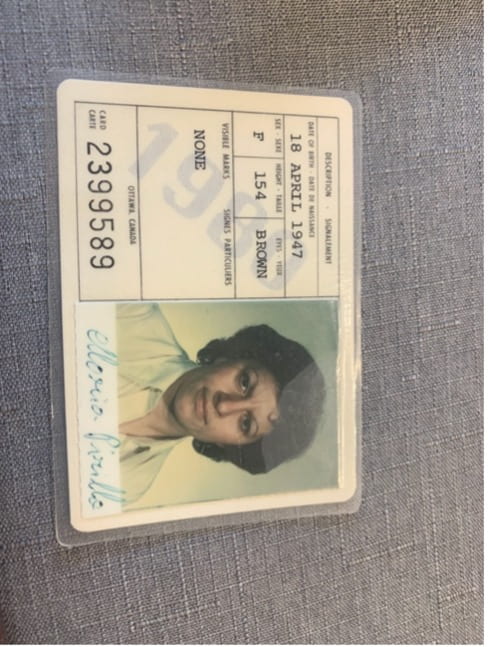
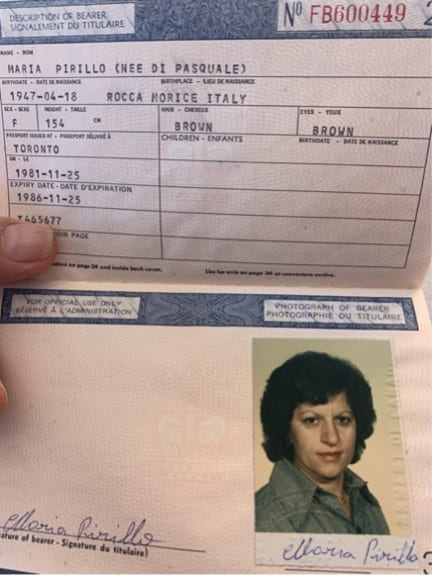
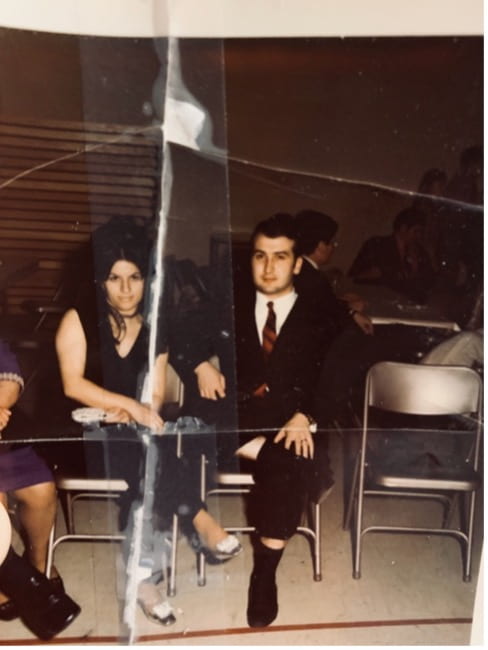

Bibliography
All photographs included have been approved for sharing from the private collection of Maria Pirillo
Clarizio, Gabriella. “Immigration Story of Maria Pirillo” YouTube. uploaded by Gabriella Clarizio, 2 October 2022. https://youtu.be/4sAsyUYXgsU; Italian Communities in Canada: Heritage, Cultural and Ethnographic Studies.
How to cite this page
Clarizio, Gabriella. “The Immigration Story of Maria Pirillo.” In Italian Communities in Canada: Heritage, Cultural and Ethnographic Studies, suprv. Teresa Russo. University of Guelph, 27 November 2022, Guelph (https://www.italianheritage.ca/2022/11/27/title-of-project-gabriella-clarizio/). Italian-Canadian Narratives Showcase (ICNS), Sandra Parmegiani, Kyra Bates, and Gurpreet Kaur.


